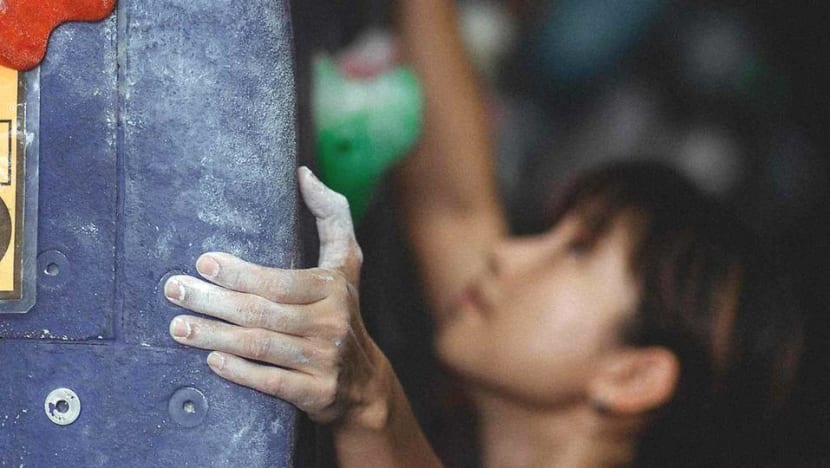Businesses move to capture lucrative mental wellness market, as more workers face burnout
From bouldering gyms to meditation studios, businesses here are trying to cash in on the growing awareness of mental health issues. Ahead of Mental Health Day on Monday, CNA looks at recent developments.

SINGAPORE: One would not expect to get some kind of therapy from a bouldering gym.
But at Project Send, a new bouldering gym situated within The Esplanade Mall, the coaches focus on building mental resilience and self-confidence in their climbers.
“In the international scene, climbing is seen as a kind of therapy. You need to be very aware of where your strengths and limitations are, so that you can solve the problem that's on the wall,” said Mr Kenneth Ng, director of Project Send.
The gym is one of several businesses here that have added a mental wellness component to their offerings in recent years. For instance, it hosts quarterly workshops that claim to help people get mentally stronger through climbing and breathing techniques.
Businesses in Singapore are moving to capture the lucrative mental wellness market, as more workers deal with work burnout amid the COVID-19 pandemic.
A recent report by non-profit organisation Global Wellness Institute (GWI) showed that Singapore’s wellness economy is ranked 14th out of 45 countries in the Asia Pacific region.
This is also a key sector that tourism authorities here are hoping to bank on over the next five to 10 years.
GWI predicts that the wellness economy will top US$7 trillion by 2025.
A LUCRATIVE MARKET
At Project Send, all its corporate-related wellness programmes are oversubscribed.
Mr Ng said the skills learnt in bouldering help climbers perform under pressure in their daily lives.
At the gym, different routes are labelled with corresponding grades, which enables climbers to perform within their abilities.
"(Bouldering) promotes working together with your colleagues because you come here after work and you collaboratively solve something on the wall together. You cheer each other on, you spur each other on, and I think that's a very, very healthy thing to do with your colleague, " said Mr Ng.
Over at a shophouse on Stanley Street in the Central Business District, sounds of hums and gongs emanate from meditation studio SPACE2B.
The space offers what is known as sound baths. This involves meditating with the practice accompanied by resonant sounds, some of which are produced by singing bowls.
And the studio is now seeing twice as much interest from businesses looking to engage their services, compared to the pre-pandemic days.
“We're getting so many enquiries, so many requests to hold our sessions at the corporate offices, and also for them to come over here, and to have sessions where they can have the overseas colleagues dial in,” said Ms Christina Nikolovski Low, founder of the studio.
“CUSTOMERS SHOULD BE DISCERNING”
As more businesses try to cash in on the rising awareness of mental health issues, Promises Healthcare clinical psychologist Jocelyn Cheng said it is important to make distinctions.
“In terms of mental wellness, there are good supplements or practices that keep up with the idea of self-care,” she added.
“Then, there is the other aspect, in terms of therapies which of these are scientifically backed-up. So I think that’s where the differentiation lies, and it gets a bit blurred.”
Determining the scientific benefits of programmes, particularly those that are meditation-based, is not straightforward, she said, adding that consumers should be discerning.
"I think we can start looking at whether these programmes that are being run are accredited within Singapore, and if there are some international societies that back them up,” she added.
"If you hear terms like mindfulness-based cognitive therapy or stress reduction, you would be more certain that they are evidence-based secular practices."
Watch CNA Leadership Summit live on 10 October 2022 from 1.30pm SGT via cna.asia/leadership-summit.
You may also be interested in:
Where to get help:
National mental health helpline: 1771
Samaritans of Singapore Hotline: 1767
Singapore Association for Mental Health Helpline: 1800 283 7019
You can also find a list of international helplines here. If someone you know is at immediate risk, call 24-hour emergency medical services.
















